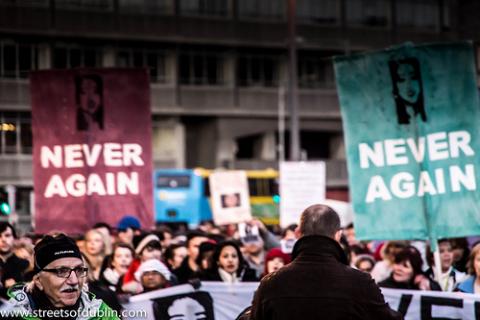Decision on abortion is for pregnant women to take

The unborn do not have an unqualified right to life: that qualification centres crucially on the pregnant woman and only she should decide. By Vincent Browne.
How anybody thought an investigation panel into the death of a person in a hospital controlled by the Health Service Executive could include medics from that hospital and a representative of the HSE itself would be beyond belief were it not devised by the hapless James Reilly.
So too is the absence of any clear legal basis for investigation, made worse by the absence of legal expertise on the panel.
A commission of investigation such as that constituted under Judge Yvonne Murphy to inquire into child abuse in the Dublin archdiocese should have been instituted. Such an inquiry, limited to the circumstances surrounding the death of Savita Halappanavar, would be brief, inexpensive, conclusive and credible.
If, following last week’s removal of the University Hospital Galway consultants from the panel, another cobbled-together panel proceeds, there are likely to be legal challenges, complaints about procedures, refusals to co-operate and, finally, a report (if the process does not collapse) that will have limited, if any, authority.
Whatever the Government does on legislation or otherwise on the X case judgment is also likely to be a fiasco, because the complexity of the issues to be addressed are such, largely because of difficulties with the Supreme Court’s judgment in the X case (if a possible suicide is a justification for abortion, then how is a possible death from other causes not a justification?).
And that complexity arises, in the first instance, from the terms of the 1983 abortion amendment. The case for amending this amendment is now compelling and this will require the Irish people to reconsider their mindset on abortion.
The absolutist position on abortion is founded on the admirable intuition that it is always wrong deliberately to take innocent human life. The defenceless unborn in the womb, unable to assert their rights, have, we feel, a special call on our consciences. Unfortunately, there is a problem with this reasoning. It would be, in my view, unchallengeable if what was being asserted was a simple right of the unborn to protection against harm, against being killed or injured.
But it is not a simple right, for it collides with another right: the right of women to decide whether their bodies should be used for the propagation of unborn, irrespective of the trauma, the physical or emotional pain this imposes on them and, in some instances, irrespective of whether they consented to becoming pregnant.
What is at the heart of the abortion issue is not just the right of the unborn to life but the validation of that right against the mother, irrespective of what it does to the mother, irrespective of her wishes, her circumstances and even of her consent (as in the case of rape).
Of course, the question of coercion does not enter into it for the vast majority of pregnant women: most are delighted and enriched by the giving of their bodies to the sustenance of their babies. But for some women this is not the case.
And what those who term themselves “pro-life” are saying, essentially, to those women who are traumatised, distressed, even at times hysterical at the thought and reality of pregnancy, is that if they don’t give their bodies to the sustenance of this being for up to nine months, they face the wrath of the criminal code.
Why only in these circumstances do we require people to give of their selves so much for the survival of another human being, when, for instance, we place no such obligations on the rest of us for the survival of millions of humans?
Isn’t it obvious, especially for us middle-class people, that if we curtailed our lifestyles and gave the saved resources to the poor, we would save millions of lives? But we don’t do that and if the State threatened us with criminal sanctions for not giving of ourselves in that relatively trivial way, there would be uproar.
So why should women, for instance those who are raped and for whom the idea of bringing the child of their rapist to full term is hugely traumatic, be forced to give so much of their selves on the grounds that unless they do so, another human will die?
The rest of us are permitted to escape similar moral obligations scot-free of any sanctions, even the sanction of a moral rebuke by society.
It may be the case that in a pro-choice environment some pregnant women would opt for abortions for reasons that would appear to many of us insubstantial.
But how in any individual case could anyone tell that the reasons for a pregnant woman opting for an abortion were trivial? How could anyone’s moral judgment be substituted for hers? Isn’t it obvious that only the woman herself is the person to make that moral judgment? Isn’t it obvious too that the criminalisation of a woman’s decision to end a pregnancy is but yet another instance of a patriarchal society seeking to control women?
A new amendment is required permitting the termination of pregnancy if a woman so demands and if medical – including psychiatric – reasons support her demand. The unborn do not have an unqualified right to life: that qualification centres crucially on the pregnant woman and only she should decide.
Image top: infomatique.
